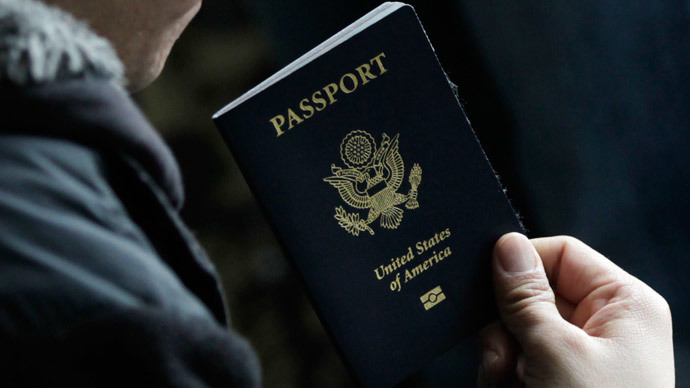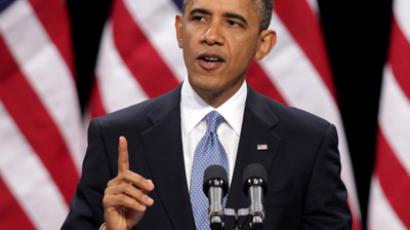New tax law pushes record number of Americans to renounce US citizenship

A record number of Americans are renouncing their citizenship as they seek to remove the burden of filing complicated and costly tax returns simply for living in another country.
According to Bloomberg News, just over 1,000 Americans gave up their nationality in the three months from January to March. That’s a significant increase from the 670 who did so in the same time span last year, and it’s already one third of the way to matching the total number of Americans who renounced their citizenship in 2013.
Last year, data from the Internal Revenue Service showed that approximately 3,000 Americans gave up their passports – a number that tripled the average of the previous five years.
Although the reasons for doing so can range from one individual to another, many of the cases have been linked to the Foreign Accounts Tax Compliance Act, which has been gradually taking effect since it was passed in 2010. Looking to crack down on tax dodgers and institutions that help make that behavior possible, Congress passed the legislation in the hopes that it would bring in hundreds of billions of dollars in unpaid taxes.
Since the US is one of the few countries that taxes its citizens regardless of where they live, however, the law has ended up ensnaring all Americans who live and work overseas and use foreign accounts to pay bills at home. As of 2012, all banks working with the US are now required to divulge information on their accounts held by American citizens.
"[Congress] said to all of these institutions, 'You need to follow this set of criteria to determine all of the Americans who are your clients," Wisconsin financial adviser David Kuenzi told National Public Radio, "and you need to report directly to us on their holdings.' "
This has caused headaches for many foreign banks – including UBS AG and Credit Suisse – who are being forced to decide between incurring high compliance costs for each American account holder and simply ending their relationship with them. As noted by Bloomberg, making sure overseas Americans are filing the right tax forms costs banks about $7,000 per person, while individuals themselves can pay out $4,000 to remain on the right side of the law.
“I feel caught in the battle between the government and the banks,” John Annen, a 46-year-old American mathematician who has lived for more than decade in Switzerland, said to Bloomberg. “The U.S. government is the biggest threat to my style of living.”
As a result, some foreign banks are declining to do business with overseas Americans and canceling accounts, while increasing numbers of US citizens are contemplating giving up their nationality.
“Those banks have been checking through accounts and informing clients they have a big tax problem,” US tax lawyer Matthew Ledvina said. “The number of people renouncing their citizenship will probably rise as the banks enforce U.S. tax rules.”
According to NPR, there are so many Americans in Switzerland looking to give up their passports that the US Embassy there has a waiting list.
Despite this, many Americans said the money owed is not the overriding issue, but rather the hassle of dealing with all the new regulations, as well as the fact that they are now dealing with foreign banks that no longer want their business.
"They've become so complicated -- the increased filing obligations over the years," tax lawyer Brad Westerfield said to CNN in February. "You see more people giving up their citizenship or relinquishing their green cards ... Individuals [are] wanting to simplify their financial affairs, and just pay tax and report to one jurisdiction."














